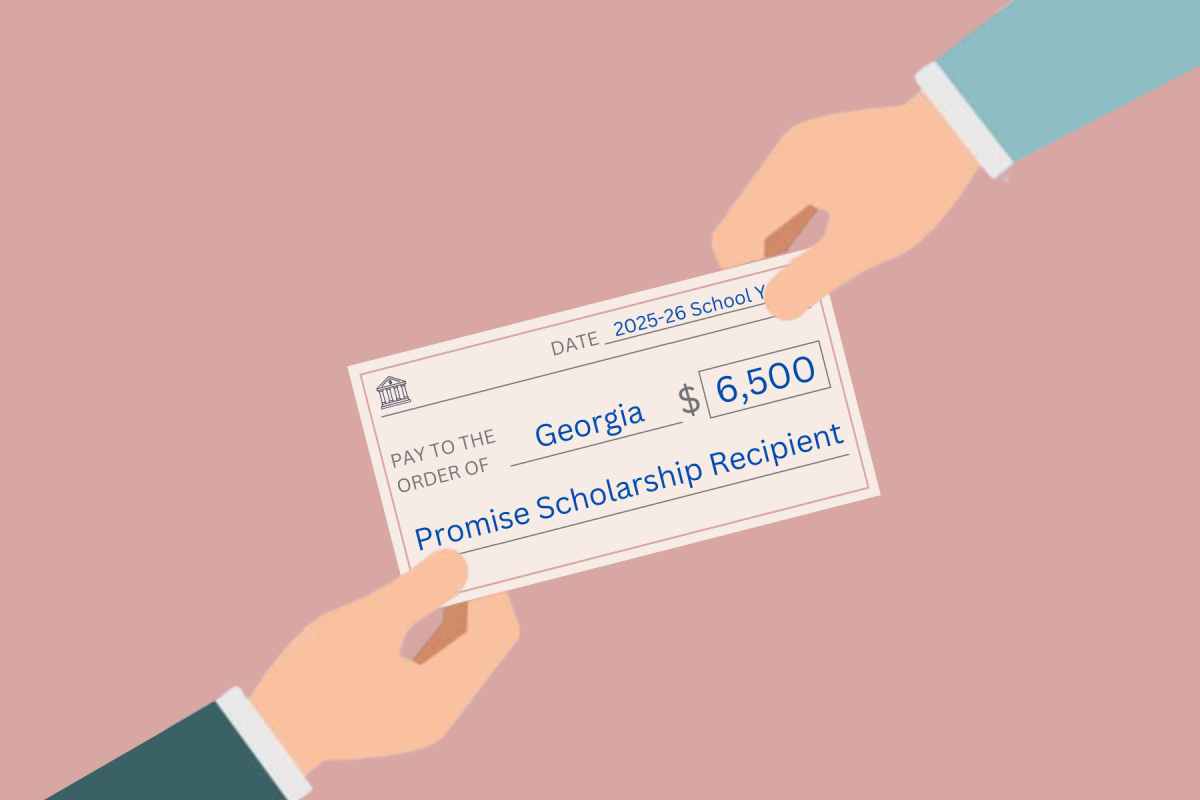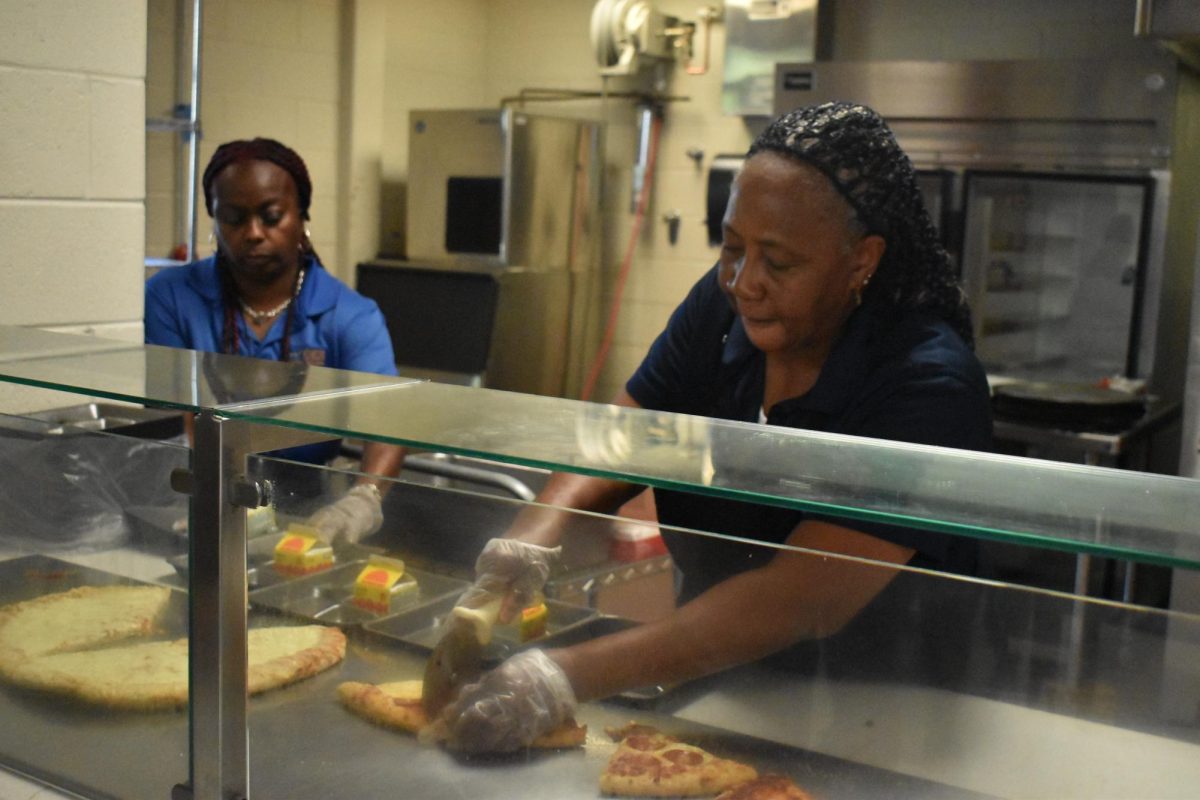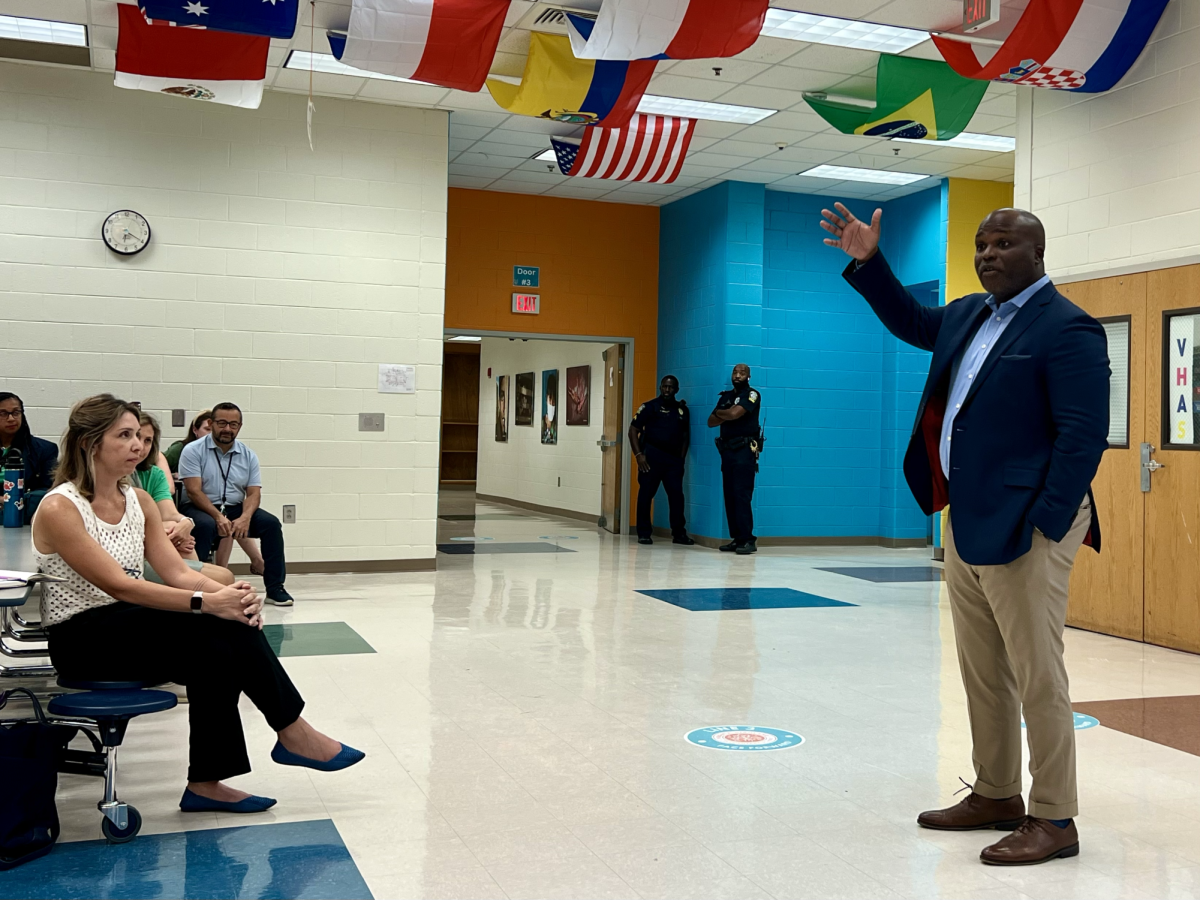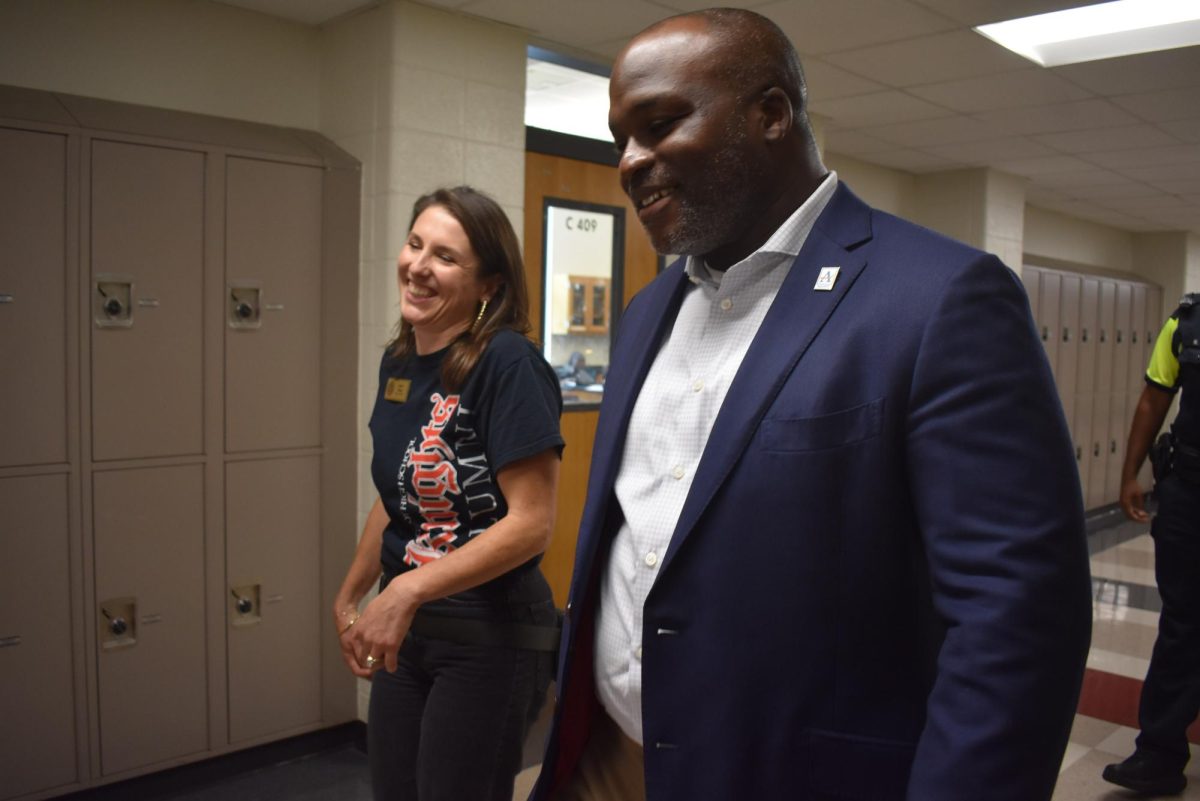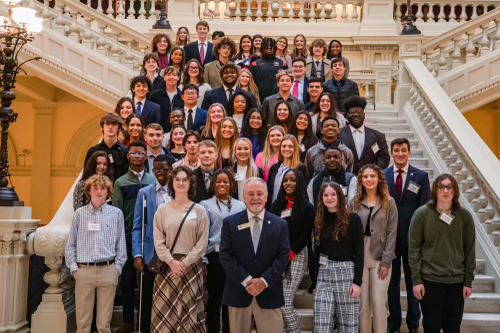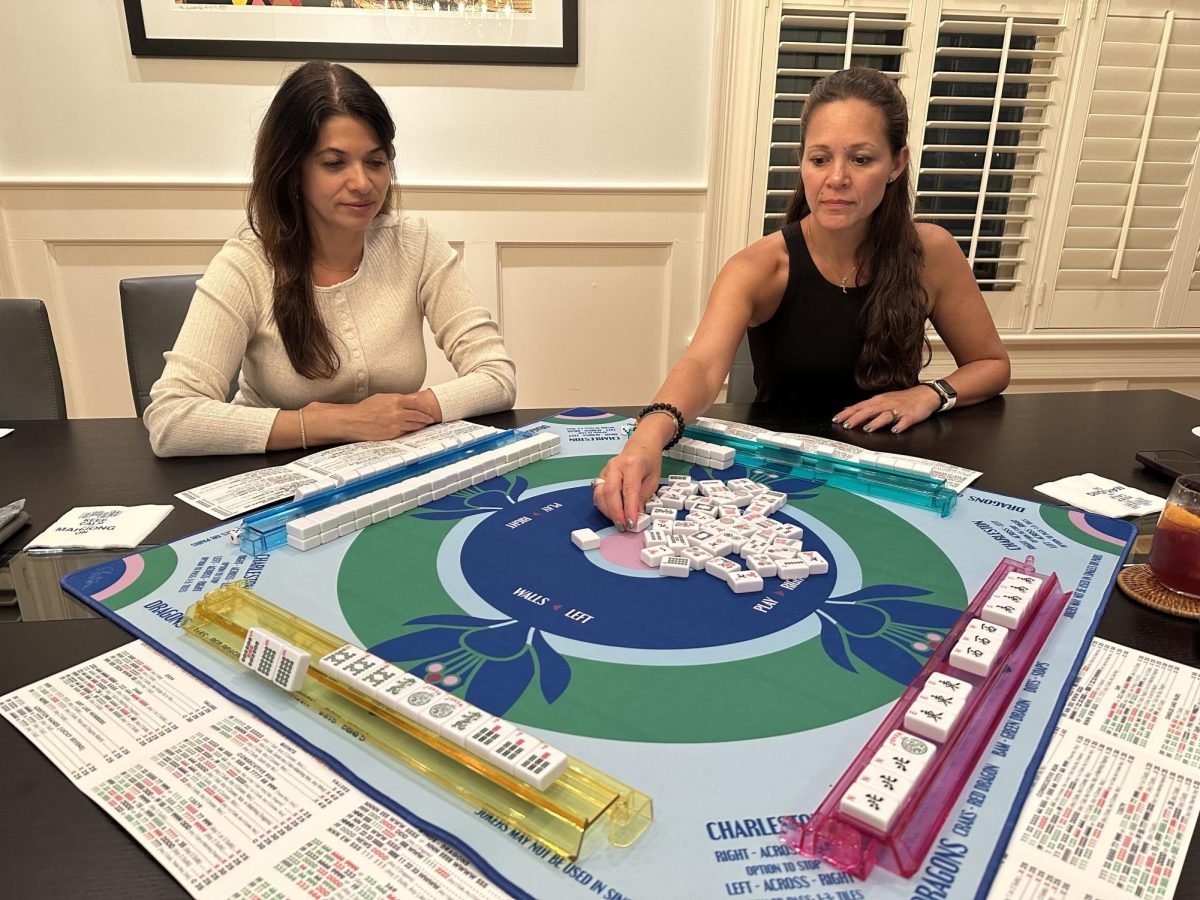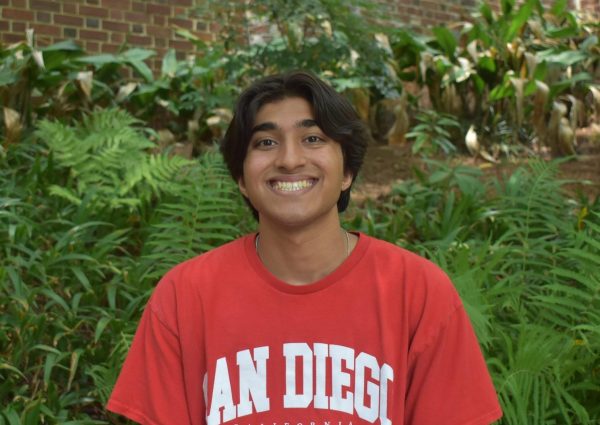Atlanta Public Schools interim Superintendent Dr. Danielle Battle’s vision for the district this year includes improving student literacy, shifting resources to classrooms, appropriate staffing and establishing transparency and accountability.
Dr. Battle said her administration chose these specific values because of their direct impact on student success and well-being.
“Each [value], in its own way, ensures we are creating an environment where every student has the opportunity to thrive,” Dr. Battle said. “They are not just words; they’re commitments to action, shaping the future of our district. When we zero in on these specific values and priorities, our aim is to cultivate an educational environment that truly fosters holistic growth.”
Literature teacher Susan Barber said she feels this vision is what the district needs.
“Honestly, I’m not even sure what’s been happening from the district in the last two years,” Barber said. “In fairness, we’re coming out of a pandemic [and] it’s been some challenging times – I recognize that. But if I had to name five things that I would want APS, or the new superintendent, to focus on, I think it would be those five [literacy, resources, staffing, transparency and accountability]. I think those are all critical at this point in defining what APS does.”
School board member Erika Mitchell agrees and said a greater focus on accountability and transparency will change the culture of the district.
“When you talk about accountability and transparency, that is huge – everyone is accountable,” Mitchell said. “We have an expectation that everyone all the way down to the crossing guard will do their job with 100% effectiveness, and if there are any barriers that are preventing them from doing their job, then we have to know what it is because we need them to be their best self for the district and for the schools.”
Mitchell also said greater focus on literacy is necessary for the district.
“If you look at our data, it tells a story,” Mitchell said. “It doesn’t matter how you try to manipulate it or change it by decreasing the baseline or changing the targets; at the end of the day, if our student outcome is below proficient or average, we have an issue.”
Dr. Battle said she believes that by placing literacy at the forefront of the district, students will be set on a path to lifelong learning.
“[Literacy] is more than just reading and writing; it’s about empowering students to understand the world, express their ideas, and actively engage in their communities,” Dr. Battle said. “Without strong literacy skills, students can face barriers in every subject, and later in life. Ensuring our students are proficient in literacy is a promise to give them the tools they need to navigate the world and pursue their passions.”
Dr. Battle said the district has set several strategic initiatives in motion to bolster literacy, including the continued administration of MAP (Measures of Academic Progress) tests, investment in pre-K and kindergarten literacy programs and enhancements in teacher training. The initiatives also include the initiation of a community reading program that involves partnerships with local libraries, businesses and community leaders to promote reading outside of school hours.
“Our approach to literacy is multi-faceted and deeply rooted in the understanding that reading is a foundational skill,” Dr. Battle said. “Through these plans, we aim to create an environment where every student can confidently navigate the world of [literacy], both within and beyond school walls.”
To help advance these initiatives, Mitchell and board member Tamara Jones have worked together to develop a comprehensive literacy policy draft.
“I’ve been working with Dr. Ryan Lee [Chief Academic Officer of Atlanta Speech School], who Tamara referred to me after the Senate Bill and House Bill were passed – the literacy and dyslexia bills,” Mitchell said. “[This has given me an] understanding of what a rollout of a policy looks like from an implementation perspective so that I kind of work backward.”
Mitchell said that the literacy draft, which she says is expected to be adopted by the board in early December, encompasses Dr. Battle’s vision and initiatives regarding literacy.
“The policy will give [literacy] the guidance district-wide, so it’s streamlined, so every elementary school will start with the science of reading, not just one out of 24,” Mitchell said. “The policy is to understand and evaluate the meaning of literacy through reading, writing, listening and speaking. [Dr. Battle] really is pinpointing that literacy needs to be funded first [and] literacy needs to be a funding priority, and that’s really important; you can roll things out, but if you don’t have the funding to support it, it is not going to be effective.”
Board member Michelle Olympiadias said that, as part of the district’s early childhood literacy programs which Dr. Battle has outlined, APS has started to shift literacy instruction to the Orton-Gillingham approach. This methodology, which Morningside Elementary School adopted 10 years ago, gives students a basic understanding of phonics.
Olympiadias is in favor of this decision but said different students need to be met in terms of literacy at their appropriate level.
“I was a strong advocate more than 10 years ago in telling the administration that the [Orton-Gillingham Approach] is where we needed to move, and we have finally started to move there,” Olympiadias said. “What I’ve pushed for and what I hope that they do is a K-3 push because that’s where you have to get [literacy] going. But then at the same time, you have to recognize the fact that kids didn’t get the foundations that they needed when they were younger, so you have to put in those remedial supports. I think they’re committed to that.”
Olympiadis likes Dr. Battle’s literacy training initiative for teachers and said proper training for teachers is critical to the success of literacy in the district.
“The biggest issue is teacher training [and] making a serious investment on getting teachers trained on how to [teach] this methodology [Orton-Gillingham approach],” Olympiadis said. “Then [it’s important to] make a commitment to do the methodology and recognize that the fact that what happened at Morningside can happen across the district because that’s been part of the issue.”
Although Barber likes the idea of teacher training, she believes a greater instructional time allocation at the expense of standardized tests like MAP would be beneficial to the students.
“What I would like to see is putting resources into teachers’ hands [and] helping teachers get the training that they need – professional development that is truly worthwhile and talks about strategies in the classroom,” Barber said. “I would even argue [for training] from people who are in the classroom doing the work, like people who know what it’s like. And I think that either 24 or 27 days is the count that students lose in instruction to taking tests, so I would like to see a shift in that to fill in the qualitative data and teach kids just how to read and write.”
Olympiadis ultimately said she believes that, for the upcoming year, the district will progress well toward these goals under the leadership of Dr. Battle and her appointed team.
“APS has had its issues for many, many years,” Olympiadias said. “However, we do have people that actually know how to get work done, and Dr. Battle and whoever she picks to be on her team, are going to be people who can move us for a minute, and she’s made it very clear that she’s not going to stay. Of course, that’s her choice, but at the same time, it’s very concerning.”


